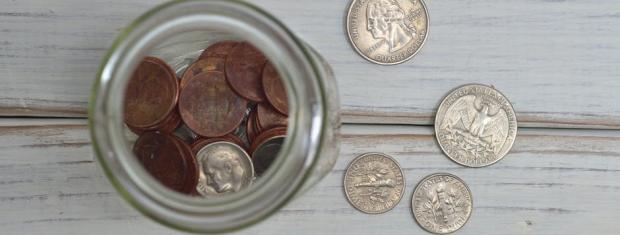
12 Ways to Save Money in the Winter
Winter is coming! That means everyone is both mentally and physically preparing for the cold that is ahead. It’s time to pull out your winter coat and dust off your boots. Kids will be desperately trying to find mittens that match and snow pants that fit. And while everyone prepares for the first snow, is your wallet prepared for the spike in heating bills? Cut down your costs this season with these 12 helpful tips.
1. Air Seal Your Home
Don’t raise your heat bill any more than you must by letting unwanted cold air into your home. The two biggest culprits for letting in the extra cold are the windows and doors. Windows and doors that aren’t properly sealed make gaps for cold air to sneak in through. Storm windows and screens are a great solution, but if you’re looking for a cheap fix recaulking, weatherstripping, or even stuffing towels in the linings will help to prevent the cold from coming in.
2. Use Warm Clothes and Blankets
It’s that time of year to bundle up! Not only outside, but inside as well. Your feet are very receptive to the cold so make sure you wear heavy socks to keep you warm, instead of cranking up the thermostat. When you’re chilly, grab some more layers or even a blanket. This will help to trap your body heat and avoid the thermostat.
3. Lower the Temperature in Your Home
During the winter your thermostat is a big spender when it comes to your heating bill. Decrease the size of your bill by heating your house smartly; only use the thermostat when people are home and awake. Save yourself some money by lowering the temperature a degree or two at night and when people aren’t at home. Investing in a programmable thermostat will make the temperature changes much easier.
4. Run Ceiling Fan Clockwise
Most fans should have a setting that allows them to spin in reverse or clockwise. Since heat rises, the clockwise spin of the fan will push the warm air back down into the room where it belongs.
5. Use Your Blinds Wisely
When the sun is shining take advantage of the free warmth by making sure your blinds are open. Then at night when the sun is set close your blinds and let them act as another layer of insulation.
6. Cook Meals at Home
During the winter your oven can come in very handy. Using your oven as often as possible during the winter is a great tactic to add a little extra heat to your home. There’s nothing like a home cooked meal and saving yourself some money.
7. Optimize Space Heater Use
If you tend to only occupy one or two rooms in your house, you may want to consider turning off your furnace and relying on a space heater. Space heaters are less expensive to run and logical to use if you only spend your time in a few rooms. Simply turn the heater on when you’re in the room and off when you leave. That way you’re not wasting any heat or any money.
8. Humidify Your Air
During the winter the air in your home can get very dry. Heat holds better in damp air so by investing in a humidifier you’ll make yourself feel warmer for longer.
9. Replace Your Furnace Filter
Dirty furnace filters make for a higher heating bill. When the filter gets clogged with dust the furnace must work longer and harder to heat your home. Make sure you change your filter once a month to avoid any unwanted additions to your heating bill.
10. Add Some Insulation
Insulation helps to keep the warm air trapped inside your house, so it’s a good idea to make sure you have enough before winter rolls around. A great tip to know whether you have enough insulation is if you can see the ceiling joists, if so then it’s time for more insulation.
11. Close Some Unused Rooms
If you have frequently unused rooms in your home, then don’t waste money heating them! Close the vents in unoccupied rooms and close the doors as well. This will prevent any heat from being wasted on rooms that don’t need it and allow the rooms you use daily to stay warm.
12. Lower Your Hot Water Heater Temperature
Set your water heater to the hottest temperature you would want your shower to be. Most people prefer temperatures of 120 F to 125 F. By heating the water to only what you need, your water heater won’t have to work as hard and it’ll save you a little more cash.


